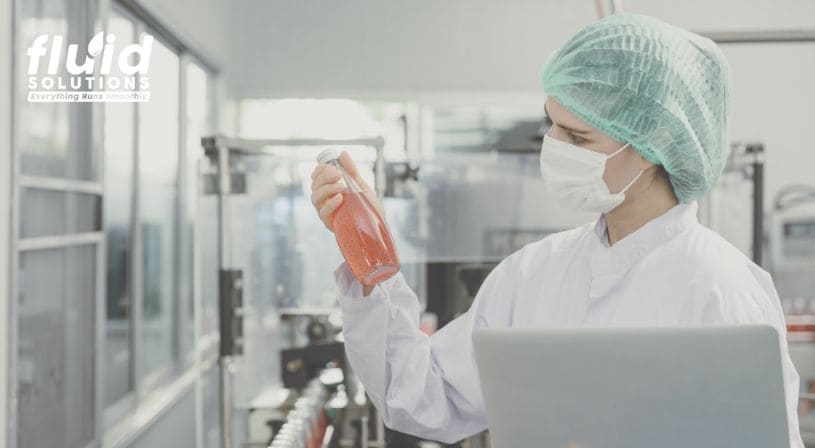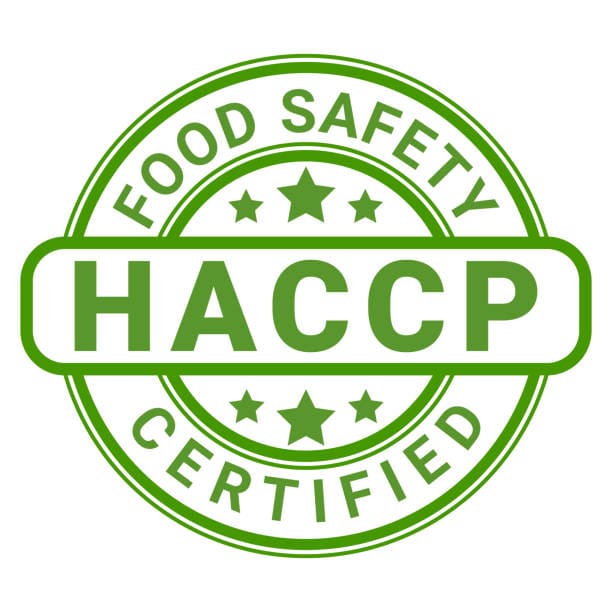
The industrial and manufacturing sectors in the Philippines, especially food processing, have grown significantly. As it expands, strict safety regulations, like the HACCP or the Hazard Analysis and Critical Control Points (HACCP) program, must be followed to prevent hazards in food production. By following its seven principles, HACCP ensures food safety throughout the production chain.
An essential aspect of this is the use of food-grade lubricants which play a crucial role in protecting equipment and preventing contamination. These specialized lubricants align with HACCP principles, ensuring that machinery operates safely and efficiently, while minimizing the risk of product contamination, helping to maintain a clean and compliant environment.
Understanding HACCP and Its Importance
National Aeronautics and Space Administration (NASA) and the Pillsbury Company originally developed the HACCP program in the 1960s to ensure food safety and longer shelf life for space missions. Today, it is a globally-recognized standard for managing food safety risks in food production, processing, and packaging. The program emphasizes identifying and controlling hazards, particularly at HACCP Critical Control Points (CCPs)—key stages where hazards can be reduced or eliminated.
HACCP Compliance for Food Manufacturers
Compliance with HACCP food safety is crucial for food manufacturers, especially for international trade. Non-compliance can cause costly recalls, fines, and reputational damage. Within this framework, maintaining food production machinery is vital to avoid contamination, where food-grade lubricants play a key role. These lubricants ensure equipment runs smoothly and prevent harmful substances from contaminating food products.
The 7 Principles of HACCP
To understand the HACCP program better, here are the seven principles to remember according to the U.S. Food & Drug Administration.
- Conduct a Hazard Analysis: Identify potential biological, chemical, or physical hazards that could pose a risk in food production and assess their severity and likelihood of occurrence.
- Determine Critical Control Points (CCPs): Identify the stages in the production process where control can be applied to prevent or reduce food safety hazards to safe levels.
- Establish Critical Limits: Set maximum or minimum values for key control measures at CCPs to ensure hazards are effectively controlled, such as time, temperature, or pH levels.
- Establish Monitoring Procedures: Develop methods for regularly checking CCPs to ensure they remain within critical limits, allowing for prompt detection of any issues.
- Establish Corrective Actions: Define steps to be taken if a CCP goes out of control, ensuring food safety is restored and unsafe products are handled appropriately.
- Establish Verification Procedures: Implement activities like testing, calibration, and audits to confirm that the HACCP system functions effectively and as intended.
- Establish Record-Keeping and Documentation Procedures: Maintain thorough records of hazard analysis, CCPs, critical limits, monitoring results, corrective actions, and verification activities for accountability and continuous improvement.
What Are Food Grade Lubricants?
Food-grade lubricants are specifically designed to be safe for environments where contact between food and lubricant is a possibility. They are engineered to comply with stringent safety standards and are used in a wide range of industries, from food and beverage processing to pharmaceuticals and cosmetics.
Food-grade lubricants are classified by the National Sanitation Foundation (NSF) International into three primary categories:
- H1 Lubricants: These are safe for incidental food contact. They are used in machinery where maybe the lubricant may encounter food, such as in gearboxes, conveyors, and bearings.
- H2 Lubricants: These are used in areas where food contact is impossible, such as hydraulic systems or air compressors.
- 3H Lubricants: These are used for direct contact with food, such as mold-release agents in the packaging process.
Using non-food-grade lubricants in a food processing environment poses serious risks, including the contamination of food with harmful substances. This can lead to HACCP non-compliance, product recalls, and potential health risks to consumers. Therefore, it is crucial to use food-grade lubricants for food processing equipment to avoid these hazards.
HAACP Regulatory Standards and Compliance

Image Source: https://www.istockphoto.com/vector/haccp-icon-symbol-simple-design-gm1765295055-545262785
Adherence to regulatory standards for lubricants in the food industry is crucial for maintaining HACCP compliance and other food safety programs. Organizations such as the USDA, NSF International, and the FDA establish standards for food-grade lubricants, ensuring they are safe for use in food processing environments. These standards help protect against contamination risks that could jeopardize product safety and lead to non-compliance penalties, costly recalls, or a loss of consumer trust.
Using non-compliant lubricants can result in contamination, which directly conflicts with HACCP principles, including the control and monitoring of critical points in the production process.
Ensure HACCP Compliance and Food Safety with Expert Lubrication Products from Fluid Solutions
Using food-grade lubricants is an essential part of any successful HACCP program. These lubricants play a critical role in preventing contamination, ensuring equipment efficiency, and maintaining compliance with regulatory standards. By integrating food-grade lubricants into your HACCP program, you can protect your food processing operations from potential hazards and ensure the safety of your products.
With over 16 years of experience, Fluid Solutions is a leading provider of lubrication solutions in the Philippines. Our products are designed to meet the highest safety and performance standards, helping businesses achieve HACCP compliance and maintain the integrity of their operations.
Ensure the safety and compliance of your food processing operations with Fluid Solutions’ expert lubrication products.
Visit our Contact Us page today to learn more about how our food industry lubricants can enhance the safety of your operations.
Social Media Links:
Facebook Page: https://www.facebook.com/fluidsolutionsinc
LinkedIn: https://www.linkedin.com/company/fluid-solutions-inc


